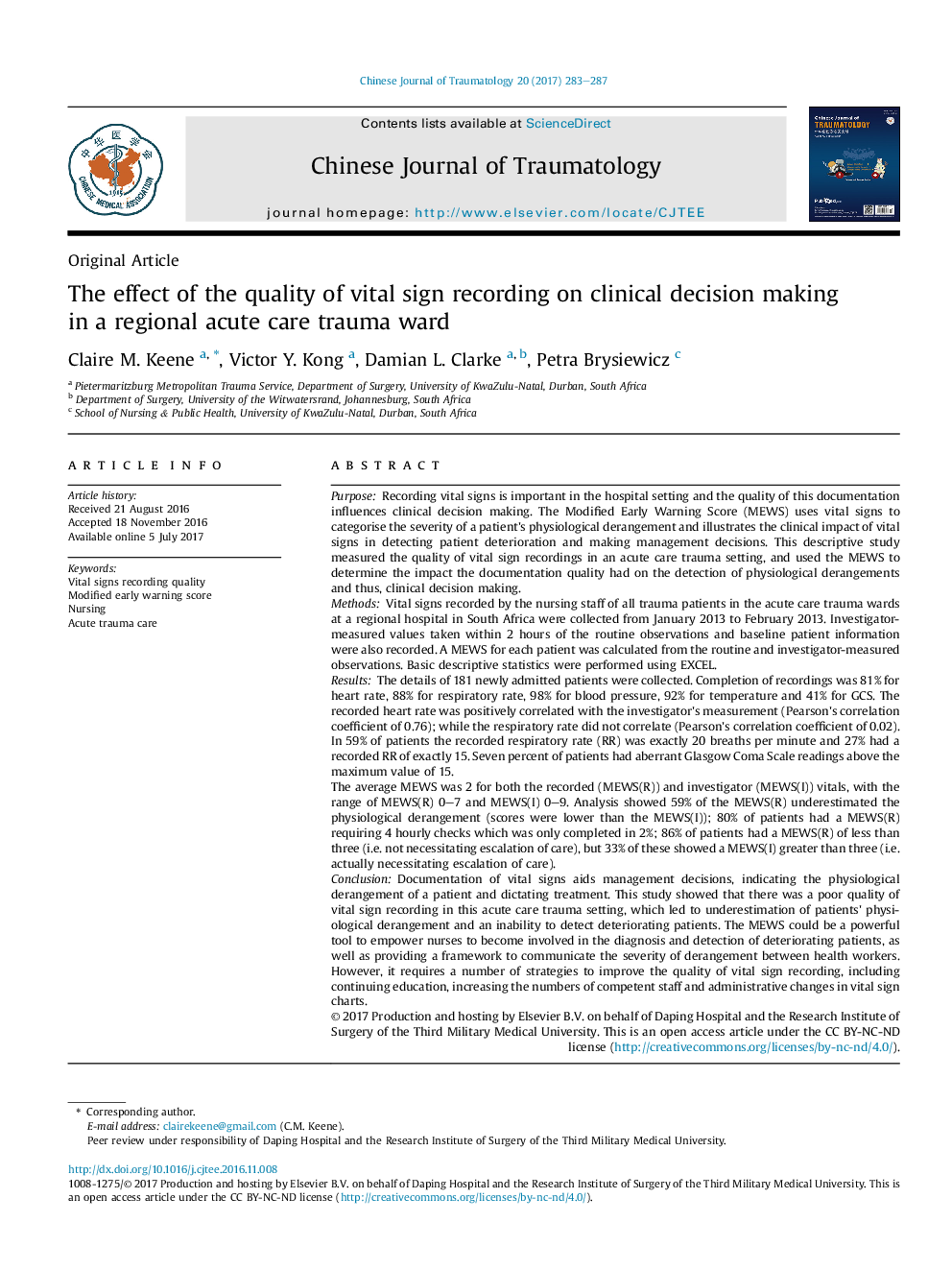| Article ID | Journal | Published Year | Pages | File Type |
|---|---|---|---|---|
| 8694951 | Chinese Journal of Traumatology | 2017 | 5 Pages |
Abstract
Documentation of vital signs aids management decisions, indicating the physiological derangement of a patient and dictating treatment. This study showed that there was a poor quality of vital sign recording in this acute care trauma setting, which led to underestimation of patients' physiological derangement and an inability to detect deteriorating patients. The MEWS could be a powerful tool to empower nurses to become involved in the diagnosis and detection of deteriorating patients, as well as providing a framework to communicate the severity of derangement between health workers. However, it requires a number of strategies to improve the quality of vital sign recording, including continuing education, increasing the numbers of competent staff and administrative changes in vital sign charts.
Keywords
Related Topics
Health Sciences
Medicine and Dentistry
Critical Care and Intensive Care Medicine
Authors
Claire M. Keene, Victor Y. Kong, Damian L. Clarke, Petra Brysiewicz,
